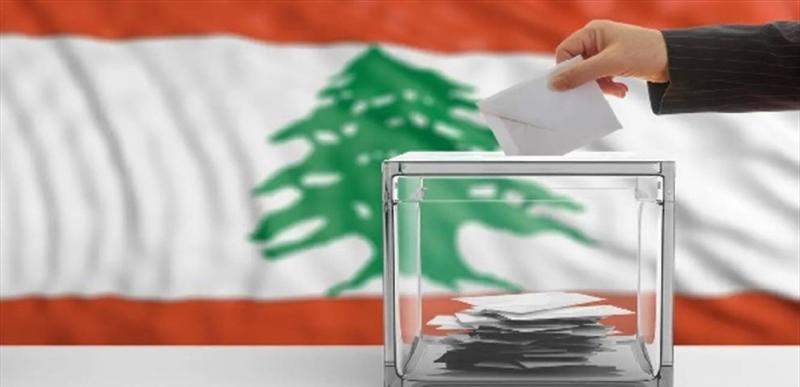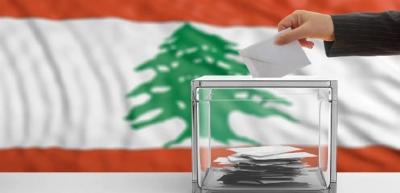The Secretary-General of Hezbollah, Sayyed Hassan Nasrallah, emphasized the necessity of "ensuring that all our MPs are elected, that none of them lose, and that we strive to achieve a majority," describing the parliamentary elections as "the most important political battle in Lebanon." During his meeting yesterday with the party's election machinery, Nasrallah stressed the importance of "supporting our allies to maintain the majority," attributing this to "their lack of good intentions," citing that "today they are fighting in Byblos under the title of changing the identity of the area; is the problem in the area the party's candidate or is it diesel and the living conditions?"
He noted that "the lists we will announce will not include all our friends," but he added that "we must not alienate our friends during the electoral campaign, neither psychologically, morally, nor ethically," clarifying that "we need to be careful about the friends' lists, while avoiding flattery in voting, we should vote for our lists and not betray, and we should avoid hostility, accusations, and doubts about the friends' lists."
Nasrallah reiterated the obligations that led Hezbollah to engage in political work, pointing out that "in 1992, we entered into a special discussion regarding the Lebanese state," where the discussion was based on "four points: entering parliament and participating in elections, municipal elections, entering the administration, and joining the Lebanese government." He added that "(we) went to Sayyid Khamenei who told us after listening to our views: there is no reason not to participate in the parliamentary and municipal elections. As for the administration, it is the council of decision that identifies the interest, and we left the matter of entering the government for the future." He continued, saying that "in 2005, after the Syrian withdrawal, we again discussed participation in the government, and we agreed on participation," explaining that "the basis for participation in the state and its institutions is the necessity of a state that guarantees life and security, protects, serves, and provides for all Lebanese in Lebanon. It is not possible to establish an Islamic state due to the diversity; diversity necessitates partnership."
He indicated that "(we) participated in the elections in 1992, and our concern was not the number but rather representation and presence, and we will not give people false promises. From the very first day the Loyalty to the Resistance Bloc was established, it engaged seriously with the issues raised," warning that "the essence of a deputy's work is legislation; evaluating the performance of deputies in Lebanon is incorrect (...) The parliament is a trench and a rampart; the deputy's job is to fight in this trench and rampart." He added that "the bloc is serious, holding weekly meetings and special sessions, discussing all legislative matters before discussing them in parliamentary sessions and committees, but this effort has not been visible to the citizen because the legislative process is large and lengthy." He continued: "The Loyalty Bloc has achieved significant accomplishments concerning exclusive agencies and the budget law and taxes."
He revealed that "the French proposed before and after 2005 the idea of including Hezbollah in power, suggesting they let Hezbollah participate in power, and when it tastes its sweetness, the weapon will become a burden. President Jacques Chirac discussed this idea with President Khatami, and they clearly offered us the presidency of the parliament, all the Shiite ministerial shares, and all the Shiite parliamentary shares, but we refused and said there is another Shiite representative, which is the Amal Movement." He viewed that "the intention behind this proposal is bad; the aim is to enter power, sell the resistance, disrupt unity, and create dissent within the Shiite community. In 2005, all sects had breaches except for the Shia." He pointed out that "as a result of the developments that occurred in 2005 and the Syrian withdrawal, the council of decision unanimously agreed to enter the government."
He spoke about "a positive witness to the importance of participating in the government, which was what happened during the July 2006 War, where we had ministers in the government, and they fought a political battle in every sense of the word; it was no less than the military battle, everyone agreed to a ceasefire except for Saniora, and we had Minister Yaacoub Sarraf and President Lahoud, along with the Amal ministers." Conversely, he provided "a negative witness to the non-existence in the government, which was what happened in May 2008 when Saniora's government decided to dismantle the wired network; no one informed us except President Lahoud."
He pointed out that "since we entered the government, we established the Government Work Committee that studies the cabinet agenda with attachments, noting that the agenda and attachments are distributed 48 hours before to the ministers, which poses a problem, as there often isn’t enough time to read the agenda with the attachments. Nevertheless, the ministers and the committee study the agenda and take decisions and directions regarding each item, starting from the legitimate factor and the people's interests and combating corruption." He added that "our ministers, by the acknowledgment of governments and all prime ministers, have been and still are present, diligent, and active, and everyone has recognized that."
He reminded that "in the political document of 2009, we stated that we want a just and capable state. Therefore, the basis for our participation in Lebanese political work is striving for a just and capable state. What we focus on, and the most essential thing we focus on, is raising the percentage of justice in Lebanon and reducing injustice for all Lebanese."




